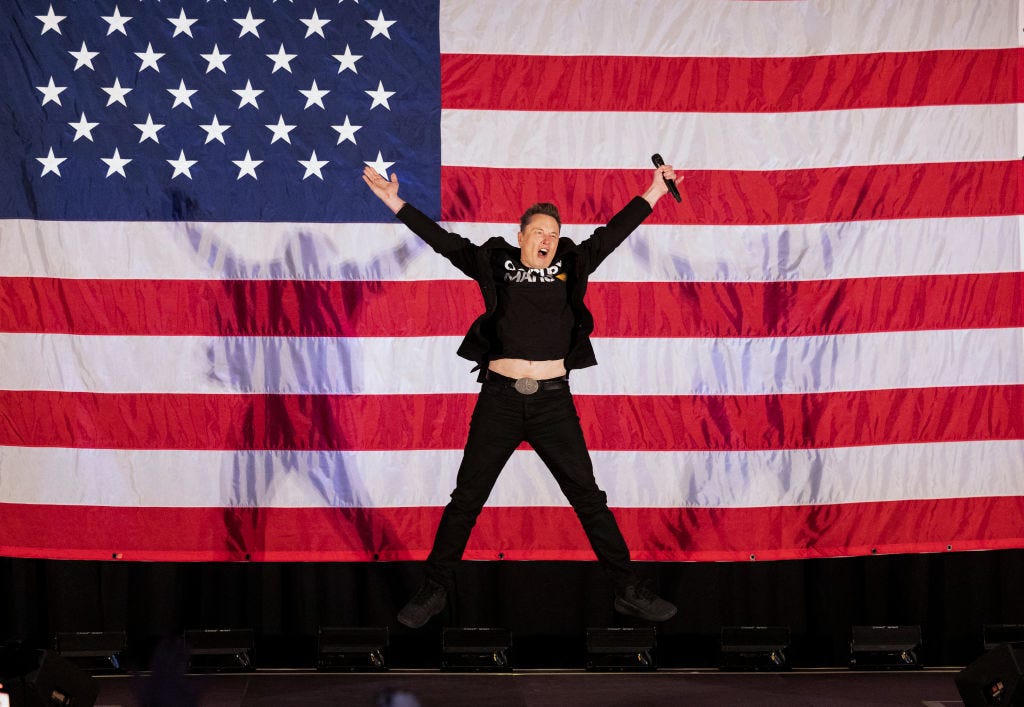Trump’s paramonetary forces
Who needs the Proud Boys when you’ve got the richest man in the world?
Fledgling authoritarian movements throughout history have invariably run into a problem: They want to impose their will, but they don’t always have access to official armed forces. So they often turn to so-called paramilitary forces: Unofficial forces, operating outside the government and skirting the boundaries of legality, willing to do what the legitimate forces will not.
The most famous example of this is probably the Nazi paramilitary group the SA, or Sturmabteilung (Stormtroopers) — also known as the Brownshirts — which roamed the streets intimidating and attacking Hitler’s ideological opponents during his rise to power. The closest corollary to such a group today is probably the Proud Boys, the far-right militia group that helped instigate the Jan. 6 attack on the U.S. Capitol; when he was asked to disavow the group during a 2020 debate, Donald Trump infamously told its members to “stand back and stand by.”
But — at least for now — Trump doesn’t need paramilitary forces. He is about to return to power as the result of a legitimate election, not an insurrection. That may change, of course, if and when he follows through on his promises to round up and deport millions of people — and indeed, militia groups are now standing by to potentially assist in that effort. But at this moment, Trump has something more useful than a paramilitary force. He has Elon.
If the Proud Boys are a paramilitary force, then Elon Musk can be thought of as a paramonetary force: A man who has so much money that he can do what an authoritarian cannot. Trump couldn’t directly pay people for votes in the 2024 election, but Musk did the next best thing: He held a $1-million-a-day voter “sweepstakes” to goose turnout for Trump. That’s just one example of how a paramonetary force can be deployed.




